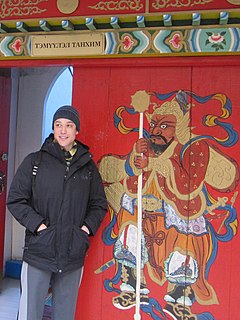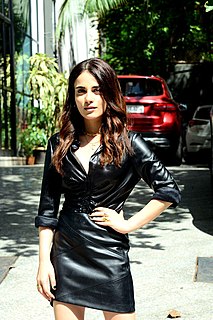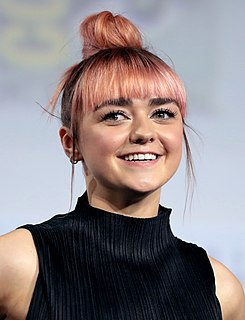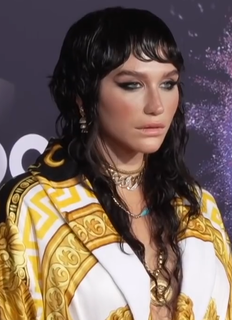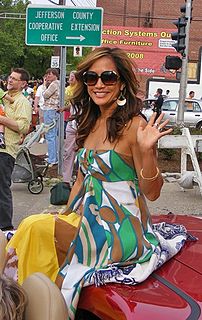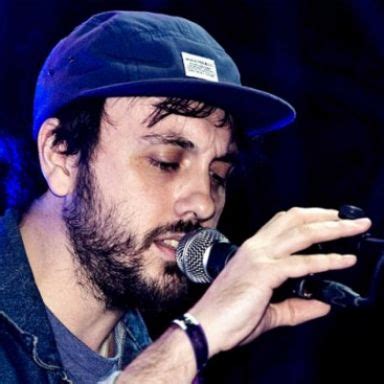A Quote by Misty Copeland
To have a platform like So You Think You Can Dance, where you're reaching this audience that's been created over the 10 years that they've been on the air. People who didn't know anything about dance and aren't going to go to the theater are learning about it, even if it's ballroom and jazz, by just turning their television ono. They're building this audience that's advanced and educated enough to introduce them to ballet.
Related Quotes
I don't understand choreographers who say they don't care about the audience or that they would be happy to present their works non-publicly. I think dance is a form of communication and the goal is to dialogue with the audience. If an audience member tells me they cried or that the dance moved them to think about their own journey or a family member's, then the work is successful.
It's nice for me to have a ballet as a kind of platform for creativity, because unlike modern dance or contemporary dance or downtown dance, ballet is formalized, and there's something orthodox about it that I like. I like that there's less emphasis on subversion and innovation. I actually think that my musical vernacular or my musical voice is also less inclined toward innovation and subversion. I think I'm a traditionalist.
The average age of the Jazz audience is increasing rapidly. Rapidly enough to suggest that there is no replacement among young people. Young people aren't starting to listen to Jazz and carrying it along in their lives with them. Jazz is becoming more like Classical music in terms of its relationship to the audience. And just a Classical music is grappling with the problem of audience development, so is Jazz grappling with this problem. I believe, deeply that Jazz is still a very vital music that has much to say to ordinary people. But it has to be systematic about getting out the message.
I don't even think of myself as a quote, unquote star - that's really douchey. I think of myself as just like . . . a dance commander. You have to have dance parties all day and night, and you always have to be excited about having a dance party. You have to have a dance party in Milan one day, and then wake up and have a dance party at, like, four in the morning on national television in L.A. the next day. The hours are insane.
It's not always about reaching the widest audience. It's about how you reach people, and in that sense, there's no difference between a little room in a back basement with ten people if you hit them hard enough, there's a nobility to reaching ten people. They are not irrelevant because they are less than 10,000.
You put music in categories because you need to define a sound, but when you don't play it on your so-called radio stations that claim to be R&B or jazz or whatever... All music is dance music. But when people think of dance music, they think of techno or just house. Anything you can dance to is dance music. I don't care if it's classical, funk, salsa, reggae, calypso; it's all dance music.
To achieve the intimacy between performer and audience in storytelling, I feel like I have to let the audience in on my emotional state, not just, "Here's a story I'm going to tell by rote, and you're just going to listen to it, because I'm such a wonderfully entertaining fellow." It's the idea of sharing enough of myself that it's not just all about, "Look at me, look at me." There's an element to it of, "You understand what I'm talking about, right? You've been in this place that I've been in," which makes it a richer experience.
Every city is different for playing, actually. That's one of the hardest things: to play abroad. Because sometimes you know your city and your audience and you know what to play and what people will dance to. And later, you go to a place and you think this thing will work and you start playing and it doesn't work, and you have to be able to go to another side just to try to find what people like or whatever, or, like, try to make people dance as they are more used to. I don't know, it's quite strange - people dance in different parts of Europe in a different way.

